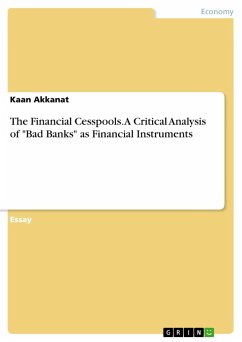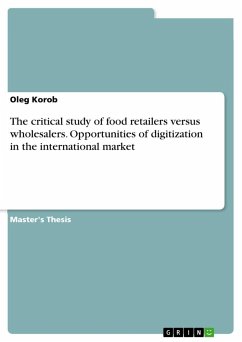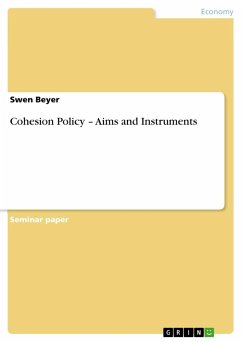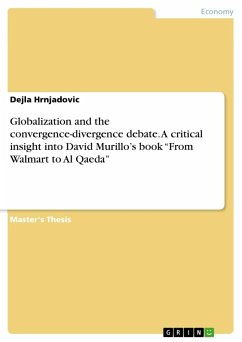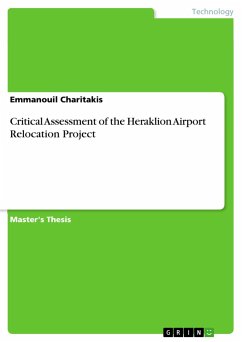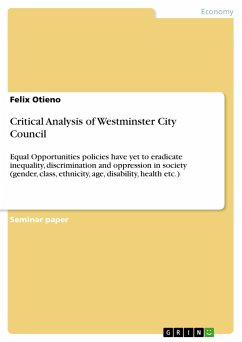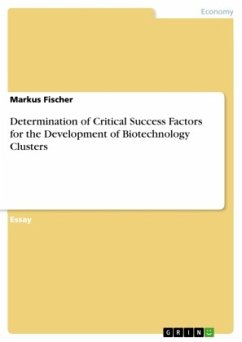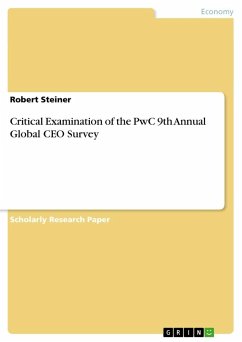Essay from the year 2012 in the subject Business economics - Miscellaneous, grade: 1.67, Jacobs University Bremen gGmbH, course: Financial Constitution (in Time of Crisis), language: English, abstract: "The cardinal maxim is that any aid to a present bad bank is the surest mode of preventing the establishment of a future good bank" wrote the British economic journalist Walter Bagehot in 1873. In his evaluative analysis, Bagehot stretched the potential problems that may arise as a result of government's interventions. Although there has been more than a century since his comments on the pre-mature idea of a bad bank and interventions, the discussions on the utility of bad banks persists in today's financial spectrums. In economic terminology, bad banks are used to take risky assets from otherwise good banks. This essay will first address the idea of so-called bad banks as a new financial instrument and then will focus on the analysis of their impacts on crises development.

